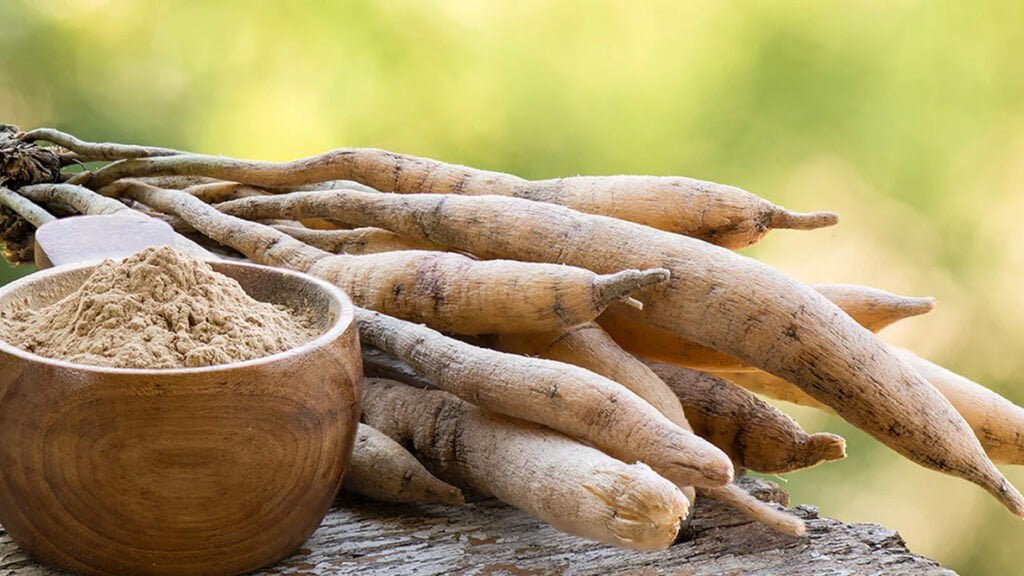Shatavari: The Queen of Herbs for Women’s Health
Table of Contents
Introduction
In the realm of Ayurveda, an ancient Indian system of medicine, Shatavari holds a prominent place as the “Queen of Herbs.” With a rich history of traditional use and a myriad of health benefits, Shatavari has become a cherished herb, particularly for women’s well-being. In this article, we will delve into the depths of Shatavari, exploring its origins, therapeutic properties, and how it can enhance women’s health naturally.
What is Shatavari?
Shatavari, scientifically known as Asparagus racemosus, is a perennial herb native to India and other parts of Asia. It belongs to the Asparagaceae family and has long, tuberous roots with slender, climbing stems. The word “Shatavari” translates to “a woman who possesses a hundred husbands,” symbolizing its rejuvenating and nourishing effects on female health.
The History of Shatavari
Shatavari has a rich historical background dating back thousands of years. It has been an integral part of Ayurvedic medicine, where it is revered for its powerful healing properties. Ayurvedic texts describe Shatavari as a rasayana, a rejuvenating herb that promotes longevity and vitality. It has been traditionally used to support women’s health throughout various stages of life.
Nutritional Composition of Shatavari
Shatavari is a nutritional powerhouse, packed with essential vitamins, minerals, and phytochemicals. It contains saponins, flavonoids, alkaloids, and essential nutrients like Vitamin A, Vitamin C, Vitamin E, potassium, calcium, and iron. These constituents work synergistically to provide a wide range of health benefits.
Promoting Hormonal Balance with Shatavari
Hormonal imbalances can lead to various health issues in women. Shatavari acts as an adaptogen, helping the body adapt to stress and restore hormonal equilibrium. It supports the endocrine system, particularly the functioning of the female reproductive hormones, promoting overall hormonal balance.
Supporting Reproductive Health
Shatavari has been traditionally used to support reproductive health in women. It helps regulate menstrual cycles, alleviates menstrual cramps, and reduces symptoms of premenstrual syndrome (PMS). The herb’s cooling and soothing properties can ease discomfort and promote a healthy menstrual flow.
Enhancing Fertility and Pregnancy
For couples trying to conceive, Shatavari is often recommended as it helps enhance fertility. It supports the proper functioning of the female reproductive system, optimizes the quality of cervical mucus, and promotes a healthy uterine environment for implantation. During pregnancy, Shatavari nourishes both the mother and the growing fetus, providing essential nutrients for a healthy gestation.
Nourishing the Female Reproductive System
Shatavari acts as a uterine tonic, strengthening and nourishing the female reproductive organs. It helps maintain the health of the uterus, ovaries, and fallopian tubes, promoting their optimal functioning. Regular use of Shatavari can help improve the overall well-being of the female reproductive system.
Alleviating Menopausal Symptoms
Menopause is a transformative phase in a woman’s life that brings about various physical and emotional changes. Shatavari offers immense support during this transition by alleviating menopausal symptoms such as hot flashes, night sweats, mood swings, and sleep disturbances. Its hormone-balancing properties help restore harmony and promote a smoother menopausal journey.

Boosting Immunity and Vitality
Shatavari possesses potent immunomodulatory effects, making it a valuable herb for strengthening the immune system. It enhances the body’s natural defense mechanisms, protecting against infections and diseases. Additionally, Shatavari boosts vitality, energy, and overall stamina, helping women feel rejuvenated and empowered.
Aiding Digestion and Gut Health
Healthy digestion is crucial for overall well-being, and Shatavari supports digestive health in multiple ways. It promotes the secretion of digestive enzymes, improves nutrient absorption, and helps maintain a healthy gut microbiome. Shatavari also possesses mild laxative properties, aiding in smooth bowel movements.
Managing Stress and Anxiety
In today’s fast-paced world, stress and anxiety have become common companions. Shatavari acts as an adaptogenic herb, assisting the body in adapting to stress and reducing its harmful effects. It calms the nervous system, promotes relaxation, and helps combat feelings of anxiety and irritability.
Enhancing Skin and Hair Health
The beauty-enhancing properties of Shatavari extend to the realm of skincare and haircare. Its antioxidant-rich nature helps protect the skin from oxidative damage, reducing signs of aging and promoting a youthful complexion. Shatavari also nourishes the hair follicles, strengthens the hair strands, and promotes healthy hair growth.
Shatavari in Ayurvedic Medicine
Ayurvedic medicine recognizes Shatavari as a versatile herb that balances the three doshas: Vata, Pitta, and Kapha. It is commonly prescribed in Ayurvedic formulations to address various health concerns, particularly those related to women’s health. The herb’s cooling and nourishing properties make it an integral part of many Ayurvedic remedies.
How to Incorporate Shatavari in Your Daily Routine
There are several ways to incorporate Shatavari into your daily routine. It is available in various forms, including powder, capsules, and liquid extracts. You can mix Shatavari powder with warm milk or water and consume it as a nourishing tonic. Alternatively, you can opt for Shatavari capsules or tinctures for convenience. It is advisable to consult a healthcare professional for the appropriate dosage and usage instructions.
Precautions and Side Effects of Shatavari
While Shatavari is generally safe for most individuals, it is essential to be aware of potential precautions and side effects. Pregnant and breastfeeding women should consult their healthcare providers before using Shatavari. Some individuals may experience mild gastrointestinal discomfort or allergic reactions.## Conclusion
Shatavari, the Queen of Herbs, is a remarkable natural remedy for women’s health. Its extensive range of benefits, from hormonal balance and reproductive support to immune enhancement and stress management, make it an invaluable herb for women of all ages. By incorporating Shatavari into your daily routine, you can harness its power to promote overall well-being and vitality. However, it is crucial to consult with a healthcare professional before starting any new supplement or herbal regimen.
FAQs
Q1. Is Shatavari safe to use during pregnancy?
Pregnant women should consult their healthcare providers before using Shatavari to ensure its safety and suitability for their specific situation.
Q2. Can men benefit from Shatavari?
While Shatavari is often associated with women’s health, men can also experience some benefits, such as stress reduction and immune support.
Q3. How long does it take to see results with Shatavari?
The timeframe for experiencing the benefits of Shatavari can vary depending on individual factors and health conditions. Consistency in usage is key, and it may take a few weeks to notice significant improvements.
Q4. Are there any drug interactions with Shatavari?
Shatavari is generally safe to use, but it is advisable to consult with a healthcare professional if you are taking any medications to ensure there are no potential interactions.
Q5. Can Shatavari be used for menopausal symptoms?
Yes, Shatavari can be beneficial for managing menopausal symptoms such as hot flashes, mood swings, and sleep disturbances. Its hormone-balancing properties can provide relief during this transition.
Conclusion
In conclusion, Shatavari, also known as the Queen of Herbs, is a powerful and versatile herbal remedy that offers a multitude of benefits for women’s health.
With its rich history in Ayurvedic medicine and a wide range of therapeutic properties, Shatavari has become highly valued for its ability to support hormonal balance, reproductive health, fertility, and menopausal symptoms.
Additionally, it enhances immunity, aids digestion, manages stress, and promotes healthy skin and hair.





